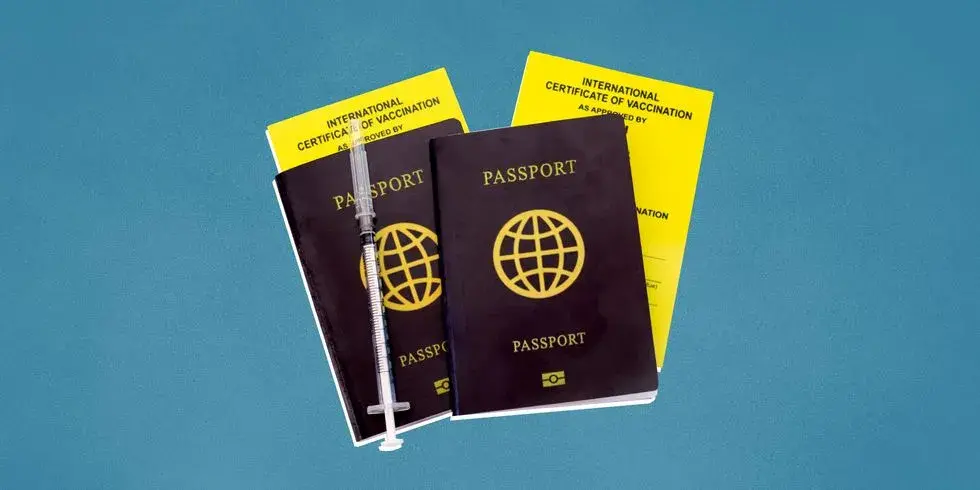When preparing for your Tanzania trip, you may have concerns about protecting your health from common diseases in Africa. This article addresses important health considerations for Tanzania, including mandatory vaccinations and recommended immunizations.

Most travelers are mistaken in thinking that they need to obtain special vaccinations for entry into Tanzania from countries such as the USA, the UK, the European Union, or other parts of the world.
If you have traveled to or are from a Yellow Fever risk country, a vaccination for Yellow Fever is mandatory upon arrival in Tanzania. You may purchase the vaccine at the immigration checkpoint if you don't have one. It is important to note that Yellow Fever vaccine has been a compulsory requirement for many years and is the most commonly requested vaccine for entry into Tanzania. However, if you have not visited any Yellow Fever risk countries, you are not required to provide proof of vaccination.
If you are vaccinated, it is mandatory to present a certificate of immunization against COVID-19. However, if you are not immunized, a negative PCR test taken no earlier than 72 hours before your arrival in Tanzania is acceptable.

If you plan to stay for an extended period in areas of Tanzania that are prone to malaria transmission, it is advisable to take precautions against this mosquito-borne disease. These measures are often recommended for long-term travel throughout Africa, not just in Tanzania, or for those planning to work or live in the country. Some travelers who are visiting Tanzania for activities such as safaris, mountain climbing, or beach holidays may also consider taking malaria prevention medication to avoid the risk of contracting the disease and potentially disrupting their trip.
While Tanzania does not have any mandatory vaccinations (unless you are coming from a Yellow Fever endemic country), it is strongly recommended to get several vaccinations before traveling to the country. These are standard precautions for traveling to developing nations and frequent travelers may have already received these vaccinations. Below is some useful information to consider for anyone planning to travel to Tanzania.
Tourists are typically advised to get vaccinated against tetanus, diphtheria, and Hepatitis A and B when traveling to Tanzania. While tetanus is thought to be more common in equatorial countries, Tanzania has one of the lowest reported rates of tetanus according to the World Health Organization (WHO), which is a United Nations organization that collaborates with national health ministries to develop global health standards and recommendations. The combined DPT vaccine is typically used to prevent pertussis, diphtheria, and tetanus. It is recommended that adults get revaccinated against diphtheria and tetanus every ten years, so it is advisable to ensure that you are up-to-date with these vaccinations before traveling to Tanzania.

Extended recommendations for vaccinations include several standard vaccines that are typically part of national immunization schedules. The U.S. Centers for Disease Control and Prevention (CDC), which provides comprehensive data on infectious and chronic diseases worldwide, recommends that travelers to Tanzania ensure they are vaccinated against diseases such as chickenpox, pertussis-diphtheria-tetanus, influenza, measles-mumps-rubella, polio, and shingles before their trip. Most of these vaccinations are usually administered during childhood. Additionally, protection against typhoid is recommended, as it can be contracted through poor hygiene associated with water, food, or contaminated surfaces. The CDC recommends this vaccine for those traveling alone, living in rural areas, or eating outside of hotels in areas with poor sanitation. For travelers interested in volunteering with animals, such as in a dog rescue program, it is advised to get vaccinated against rabies beforehand. Travelers planning a safari with Explore Active need not worry about animal contact, other than taking some incredible photos!
As an American traveler seeking adventure in Tanzania, you might have visited the website of the US Embassy in Tanzania where you could have come across the warnings concerning Covid-19, malaria, dengue, and yellow fever.
To prevent the spread of Covid-19, Tanzania mandates that all incoming travelers provide evidence of a Covid-19 vaccination or a recent negative PCR test (conducted within 72 hours).

Effective vaccines against malaria have not been developed yet, and only medications are available for prevention to lower the risk of contracting the disease. Prior to traveling to Tanzania, it is recommended to consult with a doctor to discuss anti-malaria options, as different medications may cause varying side effects. Malaria is caused by a parasite transmitted by female mosquitoes. The disease is more prevalent in tropical regions where the malaria-carrying mosquitoes primarily inhabit lowland, swampy, and wooded areas. The ideal conditions for the successful reproduction of these dangerous malaria mosquitoes are standing water, windless areas, and a constant temperature above 20°C. Therefore, areas far from lakes or ponds and places with a constant breeze, such as beachfront areas, are less likely to have such mosquitoes. For tourists coming to Tanzania for high-altitude climbing and safaris, the risk of malaria is low. The highest likelihood of contact with infected mosquitoes is theoretically possible in hotels close to swamps, but there are no such hotels in Explore Active safari programs. Nevertheless, all hotels used to accommodate guests are equipped with mosquito nets. Apart from taking anti-malarial drugs, travelers can take simple precautions to lower their risk, such as using nets and canopies at night, wearing long pants and long-sleeved shirts in the evening and morning hours, and applying mosquito repellent. Find some more details on malaria prophylactics in this article.

Several foreign embassies in Tanzania have deemed it necessary to caution travelers about periodic outbreaks of dengue fever on the islands of Zanzibar and the mainland. Dengue is a viral disease that is transmitted by specific species of mosquitoes and can be quite perilous as it may lead to severe dengue. The World Health Organization (WHO) has stated that severe dengue is primarily present in certain countries in Asia and Latin America, but also highlighted that cases of common dengue have been reported in Europe. The mosquitoes responsible for spreading Dengue Fever breed in stagnant water, such as emergency supplies that have been stored for prolonged periods of time. At Explore Active, we do not store water in this manner, and our partner hotels where our guests stay do not have such containers either. To prevent the infection, the same precautions used for malaria are advised, including wearing long-sleeved clothing, applying repellent during morning and evening hours, and utilizing mosquito nets on windows and beds in accommodations. None of the members of the Explore Active team have ever encountered dengue fever. Our responsibility is to simply inform you about the possible risks and provide the best advice to safeguard your health.
Although not explicitly mentioned by any organization, it is important to note the presence of tsetse disease (African trypanosomiasis). This disease, also known as sleeping sickness, is caused by parasites called trypanosomes, which are typically transmitted to humans via tsetse flies. These flies are commonly found in warm, humid locations such as riverbanks or near undrained bodies of water. Those at higher risk of infection include individuals residing in villages and those employed in occupations such as logging, road building, and fishing. Transmission can also occur through the exchange of contaminated bodily fluids with another individual. It is crucial to remember that there are two subspecies of the pathogen that are hazardous to humans in Africa: Trypanosoma brucei gambiense in West and Central Africa, and Trypanosoma brucei rhodesiense in South and East Africa (where Tanzania is situated). According to the World Health Organization (WHO), the West and Central African version accounts for 97% of cases, while the latter, found in Tanzania and other countries in East Africa, accounts for the remaining 3%. Additionally, the WHO identifies Tanzania as one of the countries that has reported only 1 to 10 new cases annually in recent years. Remarkably, Tanzania's successful preventive control of tsetse flies in Zanzibar has been implemented by other countries. Although there is no vaccine for sleeping sickness, based on available information, travelers should not be concerned about the disease's relevance to Tanzania.
Yellow Fever is the disease that our clients inquire about the most. This virus is spread by an infected mosquito. Due to the Tanzanian government's stringent prevention measures, including vaccination certificates from at-risk travelers before entering the country, Yellow Fever is uncommon in Tanzania. Unless you have previously traveled to a Yellow-Fever endemic country, you do not need to be vaccinated if you are arriving from the United States or any European country. If your trip includes one of the countries where yellow fever is endemic, you will be required to provide a certificate of vaccination upon entering Tanzania. Kenya, Uganda, Rwanda, Burundi, and the Democratic Republic of Congo are some of the countries located to the north and west of Tanzania where yellow fever cases are more or less common. Less than 30 cases per 100,000 population are reported for Kenya and less than 13 cases per the same 100,000 population for Uganda, which is the lowest among all countries. This information is based on data gathered from specialized medical databases from 1975 to 2020, which was published in the peer-reviewed journal BMC Infectious Diseases in October 2021. Please keep this in mind when planning your trip. If you are transiting through the endemic countries for less than 12 hours, you are exempt from getting vaccinated for yellow fever. Vaccination against yellow fever is not recommended by the CDC for those traveling to Tanzania from non-endemic countries for added safety. However, if you travel frequently and plan to visit other countries in Africa or Central and South America where yellow fever is endemic, it would be sensible to get vaccinated. A single vaccination provides lifelong protection against yellow fever. To learn more about yellow fever, including its causes, how to protect yourself from it, and what countries are at risk, please refer to our in-depth guide on our post.
When entering Tanzania, mandatory vaccinations are not required for travelers from the European Union, the United States, and many other countries. It is up to the individual traveler to decide which vaccinations they deem necessary, based on recommendations from their Ministry of Health, consultation with trusted physicians, and their personal health opinions. For those visiting Tanzania for a short time to climb Kilimanjaro, go on a safari tour, or relax on Zanzibar's beaches, it is advised to avoid worrying about the dangers in Africa. Instead, take sensible precautions and enjoy your vacation in one of the safest countries on the continent - beautiful Tanzania!
Our team is here to help you make it happen. We offer personalized travel planning services, whether you're looking to embark on a wildlife safari, unwind on a tropical beach, or climb Kilimanjaro.
If you have any questions or would like to work with us on your next adventure, please don't hesitate to get in touch. Simply fill out our enquiry form and we'll get back to you promptly.